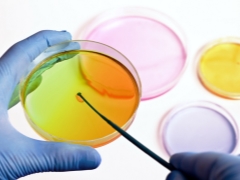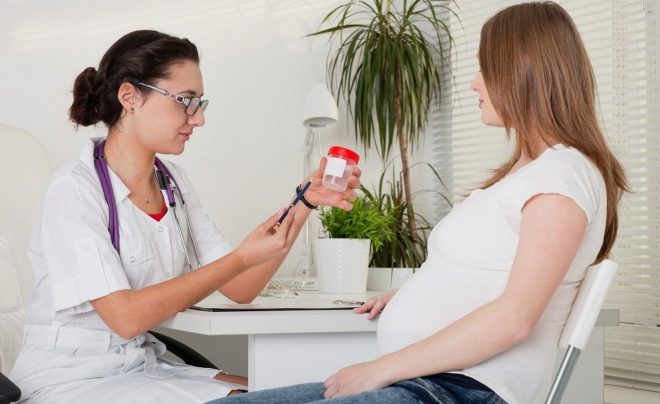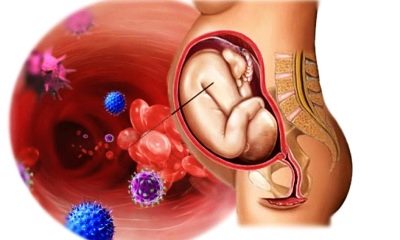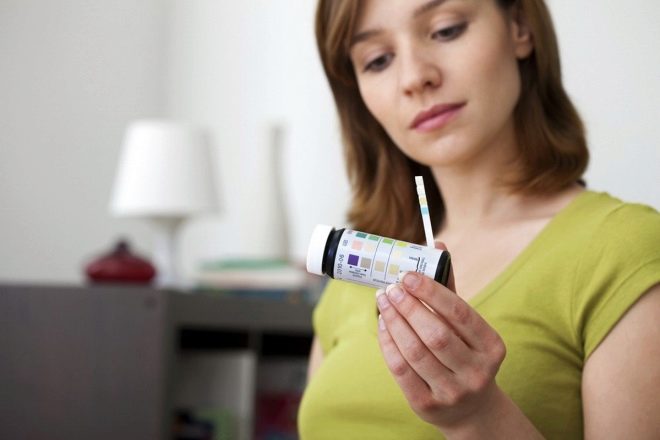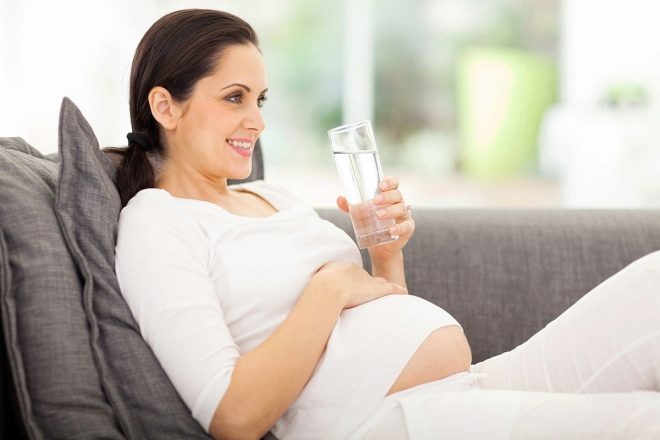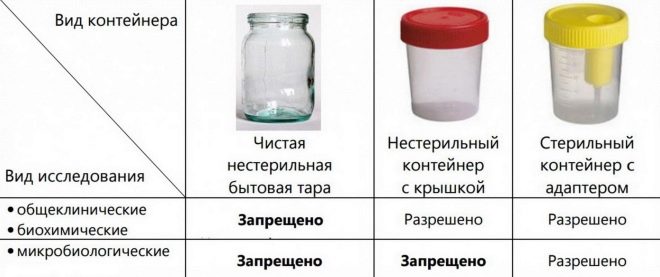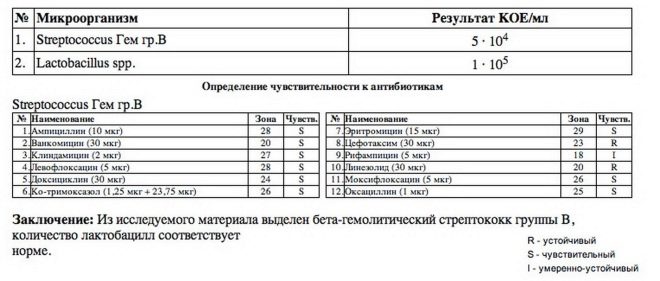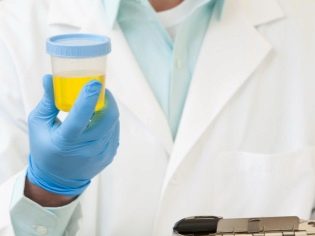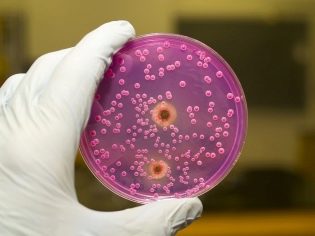How to pass and decipher the bacteriological urine culture during pregnancy?
To determine the many hidden bacterial infections that occur during pregnancy, urine bakposev is examined. This research is carried out in gynecology quite often. This article will help future mothers figure out when urine is assigned and how to prepare for it.
In what cases is carried out?
The causative agents of various urinary tract infections and kidney infections can only be determined by conducting bacteriological examination of urine. This analysis is currently carried out in almost every laboratory. You can donate urine for such a study both at a regular gynecological clinic and at a private medical center.
The risk of infection of the fetus by microbes is quite large. Bacteria, having a rather small size, perfectly penetrate the placental barrier. Getting into the systemic circulation of the fetus, they can lead to the development of various pathological conditions. A urine test in this case allows to detect such pathogens in a fairly short time.
This study may be assigned to future moms who have various diseases of the urinary organs and kidneys.
In this case, it is not necessary for these pathologies to occur in their acute stage. In some situations, even latent pyelonephritis can manifest characteristic changes in the overall analysis and urine backwater. In this case, as a rule, the appointment of special urological preparations is required to correct the disturbances that have occurred.
Even with the physiological course of pregnancy, proceeding without various deviations, doctors can prescribe a double conduct of this study. They are necessary to eliminate all "dumb" pathologies that can lead to the development of various pathological conditions in the fetus. Usually examination is carried out at weeks 9-12 and 35-36 of pregnancy.
If a pregnant woman suffers from diabetes mellitus for a long time, especially if it occurs with a constantly high blood sugar level, then bacteriological examination of urine may also be required. Persistent hyperglycemia can cause kidney damage. This condition is extremely unfavorable, especially during pregnancy.
Tank sowing can be prescribed by a doctor even if protein was detected in a pregnant woman during the screening in the urine. In this situation, it is necessary to exclude from the future mother chronic pyelonephritis, which proceeds without marked clinical signs.
If a pregnant woman had urolithiasis before the onset of conception, then in that case also carrying out bakposev would not be superfluous. This disease is often accompanied by inflammation of the renal tissue and urinary tract. A complication of this condition is the appearance in the urine of various pathogenic microbes. This can be easily determined by conducting a bacteriological examination of the pregnant woman.
The occurrence of a sudden severe pain in the lower back, an increase in body temperature to febrile values, the development of severe edema on the body - all of these symptoms also require the mandatory implementation of an extended diagnostic complex. It also includes bakposev. Quite often, these adverse symptoms are a consequence of pyelonephritis exacerbation.In such a situation, an urgent consultation of the urologist and the appointment of uroseptic drugs, which may be used during pregnancy, are required.
How to collect urine?
Before submitting a bacteriological analysis, it is very important to observe several basic rules. They are necessary for the fact that the result of the study was as informative as possible. Usually, gynecologists give small instructions and recommendations to pregnant women who come to them for an appointment on how to properly collect urine for research.
Before the analysis, doctors recommend that pregnant women do not eat any brightly colored fruits, berries and fruits. They can stain urine in bright yellow, orange or red.
This can significantly complicate the diagnosis and even lead to an unreliable result. As a rule, the use of eve analysis of beets or boiled carrots often leads to the staining of urinary sediment in red.
Dinner before the urine collection procedure should be made as easy as possible. Do not abuse fatty, fried or overly salty foods. Such food may cause the results of the analysis to be inaccurate.
Before putting bakposeva should eliminate any physical activity. Only walking at a slow pace is allowed. Yoga classes for pregnant women, climbing the stairs to several stairways at once or cleaning the apartment should be postponed until after the procedure.
On the eve of the study, whenever possible, diuretic (diuretic) drugs should be limited. Before you do this, you must be sure to consult with your doctor. In some situations, this can not be done, as there may be unpleasant consequences. However, diuretic medication may cause the test result to be somewhat inaccurate.
Drinking regimen until bakposeva remains the same. Pregnant women who are about to take the test should not restrict fluid intake.
The exception is women suffering from severe edema and preeclampsia. In this case, fluid intake should be strictly metered.
Hygiene of the external genital organs is an important preparation point before carrying out such an analysis. It should be remembered that in collecting material for bakposev hygiene rules plays a significant role.
Before carrying out the intake of fluid, it is imperative to wash the external genitals well.. This can be done with ordinary running warm water. You should not boil water or use special antiseptic agents before conducting a collection of urine samples for bacposa. After washing the genitals, they should be gently soaked with a clean, ironed towel.
Collect urine for research should be in the morning. Doctors usually recommend doing this immediately after waking up. The tank in which the urine will be collected should be as clean as possible. If it is possible to use a sterile container, then it will be a great success. As a rule, such containers are used only in hospitals.
Currently, pharmacies sell special plastic containers in which you can collect urine for research. They twist with a special cover. This helps to warn that the collected fluid during transportation to the laboratory may spill or any additional microbes from the environment will enter it.
Many mommies bring urine to the study, collected in a glass jar from baby food. This container is not suitable for collecting backwater. This is explained by the very poor processing of dishes.The microscopic remnants of food left on the walls of such a jar can lead to the fact that after conducting a study, false results will be obtained.
Medium dose should be collected for research.. To do this, you must first urinate into the toilet. This urination is called primary. Usually, it takes 2-3 seconds to pass the first portion. At the same time, the following volume of excreted liquid is collected. Usually it is required for the analysis of about 80 ml.
The next very important step is to transport the analysis to the laboratory. This should be done 1.5-2 hours after collection biological material. Longer transport times will ensure that the results obtained will be inaccurate.
In the hospital setting of the medical institution, invasive urine collection methods are also carried out. They include a suprapubic puncture, as well as catheterization. These methods are quite traumatic and should be carried out only by experienced specialists.
Improper technology to perform these studies can contribute to the application of various damages. Usually, the collection of analysis is performed in such a way only in those situations when it is impossible to collect urine for research in the usual way. As a rule, these cases occur with various previous injuries of the urethra.
Decryption
Most often, doctors try to detect various types of staphylococci, streptococci, anaerobic microorganisms, as well as fungal flora. Usually, these pathogens are quite well detected with the help of baccatev urine. There are certain rules that apply during different periods of pregnancy. Decipher the analysis will help your doctor.
As a rule, the result of backdoor is estimated using “+” and “-”. These signs are placed near each type of microorganism under study. They indicate the presence or absence of them in the resulting sample. A large concentration of microbes can be expressed in two or three pluses. In this case, doctors say that this test is positive in identifying a certain type of bacteria.
The sign "-" indicates that in the resulting sample, these microbes were not detected. This analysis is called negative.
For a quantitative assessment, doctors use special units of measure, which are called colony-forming or CFU. They are calculated per 1 ml of the test liquid. Scientists believe that 1 CFU is one microorganism that contributed to the appearance of one large colony.
Evaluation of results is carried out with a quantitative calculation. So, 1000-10000 CFU / ml indicates that the result of the analysis is doubtful. In this case, doctors, as a rule, will recommend a pregnant woman to retake this laboratory test again.
Less than 1000 CFU indicates that there are no pathological abnormalities in the presented sample. Such tests are found in uncomplicated pregnancy, as well as in situations where the expectant mother does not have any signs of kidney and urinary tract diseases.
An increase in the index above 10,000 CFU / ml is usually an unfavorable sign. This situation develops in the presence of urinary tract infections or various pathologies of the kidneys. In this case, more detailed additional diagnostic methods are required. Also in such a situation, a pregnant woman is necessarily sent for a consultation to the urologist.
For information on how to properly pass urine on bacposev during pregnancy, see the following video.
